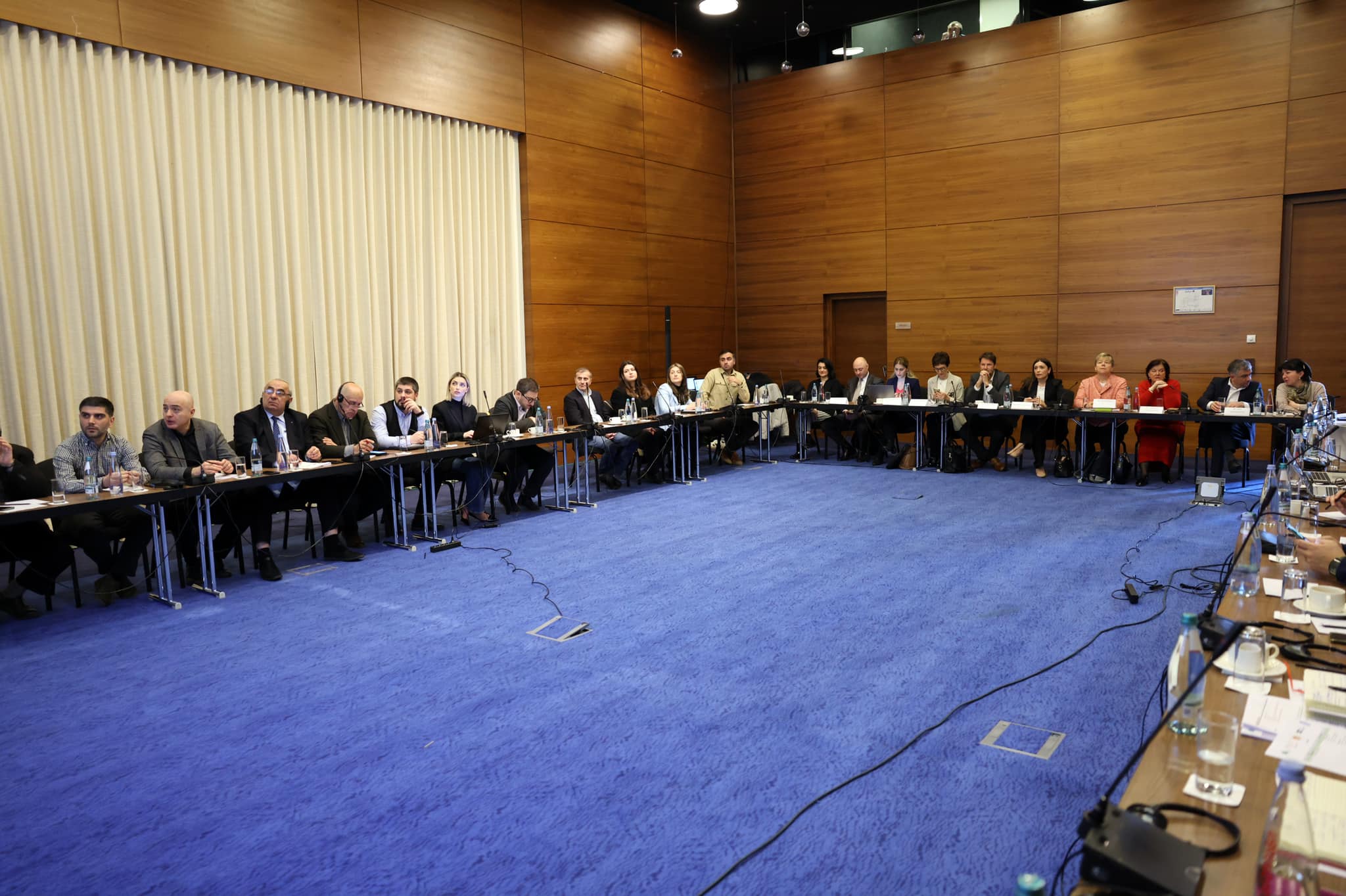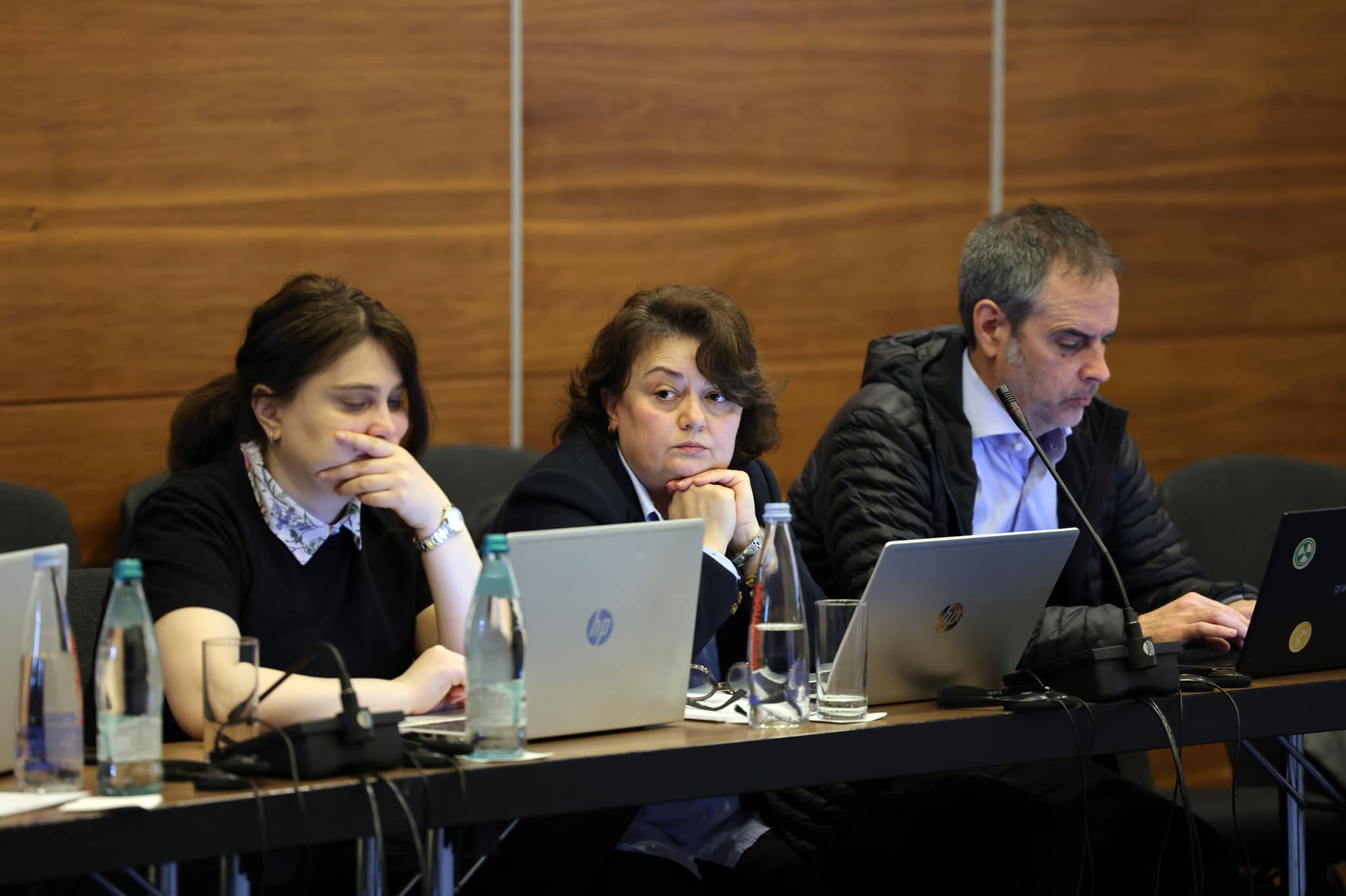News
Nino Tandilashvili: "The Government of Georgia is increasing funding to reduce the risk of disasters caused by climate change"
The Steering Committee of the Program "Reducing the Risk of Disasters Caused by Climate Change in Georgia" reviewed a wide range of topics, including the expansion of the early warning system, possibilities of adaptation to climate change, and issues of strengthening community resilience to reduce risk and disaster impact.
The First Deputy Minister of Environmental Protection and Agriculture of Georgia, Mrs. Nino Tandilashvili, Regional Director of Cooperation in South Caucasus, Embassy of Switzerland in Georgia, Mrs. Barbara Böni, Head of the Environmental Program of the Swedish Embassy in Georgia, Mrs. Khatuna Zaldastanishvili, and Resident Representative of the United Nations Development Program (UNDP) in Georgia, Mr. Douglas Webb attended the meeting.
The First Deputy Minister emphasized the progress achieved within the program, including the contribution from the state and the deepening of cooperation between the parties.
" The program takes on even greater significance in light of the dramatic changes in the climate. The contribution from the state is impressive. This year, the funding increased to GEL 30 million. New activities were planned, including procuring additional hydro meteorological stations. The state budget will be mainly used for developing infrastructure projects. Moreover, the regional office has already been constructed in Poti, and works are underway to build a new office in Kutaisi. Several natural disasters have occurred in Western Georgia in recent years thus, establishing regional offices is our top priority. The state budget includes other activities as well, such as improving the monitoring system on geological hazards", - said Mrs. Nino Tandilashvili.
It is worth noting that under the program "Reducing the Risk of Disasters Caused by Climate Change in Georgia", 79 new hydro meteorological stations and posts were installed and added to the existing hydro meteorological monitoring network in Georgia, 15 agrometeorological stations were purchased, geological monitoring stations were installed at 11 locations, hazard maps were created, and emergency management plans were developed for the assessment and modeling of natural hazards. The development of a disaster risk information system is currently underway. Moreover, flood protective infrastructure is being built in 15 locations throughout the country, and information campaigns and educational activities are being carried out in 11 local municipalities to raise public awareness.
According to the Regional Director of Cooperation in South Caucasus, Embassy of Switzerland in Georgia, Mrs. Barbara Böni, the Swiss government is happy to see the progress of the ongoing program in Georgia.
"Cooperation is the key to the successful implementation of the project. We hope that the state will continue to improve infrastructure and train employees to reduce the risk of disasters, and from our side, the Swiss government will increase funding," said Mrs. Barbara Böni.
The program "Reducing the Risk of Disasters Caused by Climate Change in Georgia", with a total budget of 74 million US dollars, has been implemented since 2020 with the financial support of the Government of Georgia, the United Nations Development Program (UNDP), the Green Climate Fund (GCF), the Swiss Agency for Development and Cooperation (SDC) and the Swedish International Development Cooperation Agency (SIDA).
The seven-year program aims to reduce the direct impact of disasters caused by climate change on the population, environment, and infrastructure of Georgia.
The representatives of the Ministries of Environmental Protection and Agriculture and Internal Affairs and the agencies under their management, the National Security Council, the Ministry of Regional Development and Infrastructure, local municipalities, the United Nations Development Program (UNDP), and the Swiss Agency for Development and Cooperation (SDC) attended the meeting.



